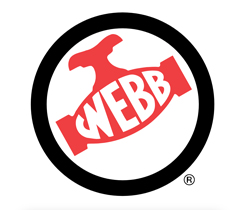Propane retailers, safety leaders discuss disaster preparedness
Planning for the success of your propane business is always of the utmost importance, but it becomes even more important when a natural disaster is imminent.
A panel of propane retailers and state directors, as well as members of the National Propane Gas Association (NPGA) and the Propane Education & Research Council (PERC), discussed at the NPGA Propane Expo in Atlanta how propane retailers should prepare for and recover from natural disasters.
According to Eric Kuster, director of safety and certification at NPGA, the United States is second only to China when it comes to the number of natural disasters that occur per year. Therefore, it stands to reason that most propane retailers will have to deal with a natural disaster at some point during their careers.
Retailers who are directly impacted by a disaster might struggle to run their businesses, but asking questions about what they might do in the face of a natural disaster and coming up with a plan will help these marketers get on their feet in a more timely manner.
Hurricanes and wildfires and mudslides, oh my!
Stuart Flatow, vice president of safety and training at PERC, reminded marketers to use resources provided by the council to notify customers of what they should do in the case of a natural disaster. The council has consumer safety modules, radio ads, newsletters and flyers. Providing customers with information ahead of time will hopefully alleviate some of the stress post-disaster, he says.
Scott Weatherford, safety training director at Blossman Gas; Bill Van Hoy, director of the Texas Propane Gas Association; and Jeff Stewart, president of Blue Star Gas in Santa Rosa, California, have dealt with natural disasters.
Blossman Gas is located in Ocean Springs, Mississippi, an area prone to hurricanes. Weatherford’s advice for dealing with these types of natural disasters: Have a plan, test your plan and implement your plan. It should cover family – which Weatherford says is synonymous with employees – your company and your customers.
“If we don’t plan for our family, then we can’t expect that family to support our company and our customers in a time of need,” Weatherford says. “If we do not take care of our company, our assets, our company cannot support our family and our customers. The customer goes without saying. Our customer has been through a disaster; they’re going to rely on our assistance right away and in a timely and efficient manner. We need to be in a position to support them.”
Van Hoy, who dealt with the devastating effects of Hurricane Harvey last year, reminded marketers to turn to their national association, state associations and the associations of surrounding states to help with the recovery process after a natural disaster strikes. These associations can work as an extension of your business and help you in emergency situations.
“If you go through a hurricane or a fire, you’re now understaffed by a long shot,” Van Hoy says. “You’ve got way more things to do than you have staff to do it. And that’s when I bring in the state associations. There are people who will want to help you. Sometimes you hear that the propane industry is a family organization. Yes, you may compete, but those people who have not been affected will want to help you.”
According to Stewart, natural disasters in California, such as earthquakes, forest fires and mudslides, can occur without warning.
“[This] adds a dynamic that is challenging and we always have to be in a state of readiness” Stewart says. “Our plans are a little more reactive, but I think you can always be more proactive.”
It is hard to plan for a disaster when you don’t know it’s coming, so Stewart urges marketers to have plans in place, even if you don’t know when you will use them.
Companies should have an emergency response plan that is communicated to and understood by employees. They should also have prepared public service announcements and designate a main point of contact at the company. Ensure you have backup power and communication tools other than cellphones. Equipment should be ready and retailers should complete monthly inspections to ensure everything is ready in case of a disaster.
















